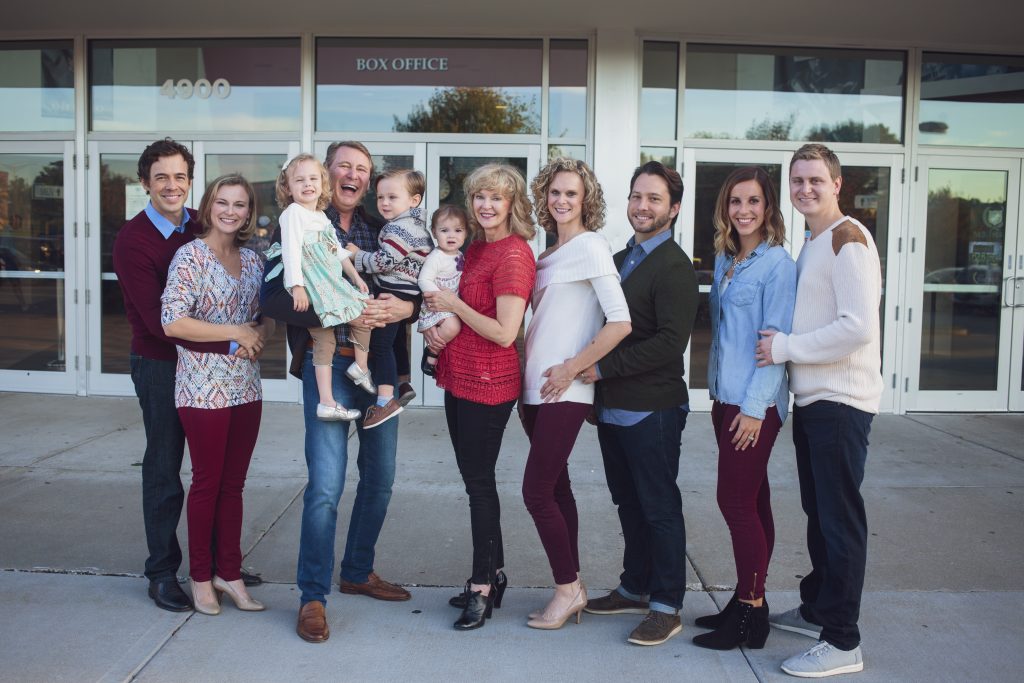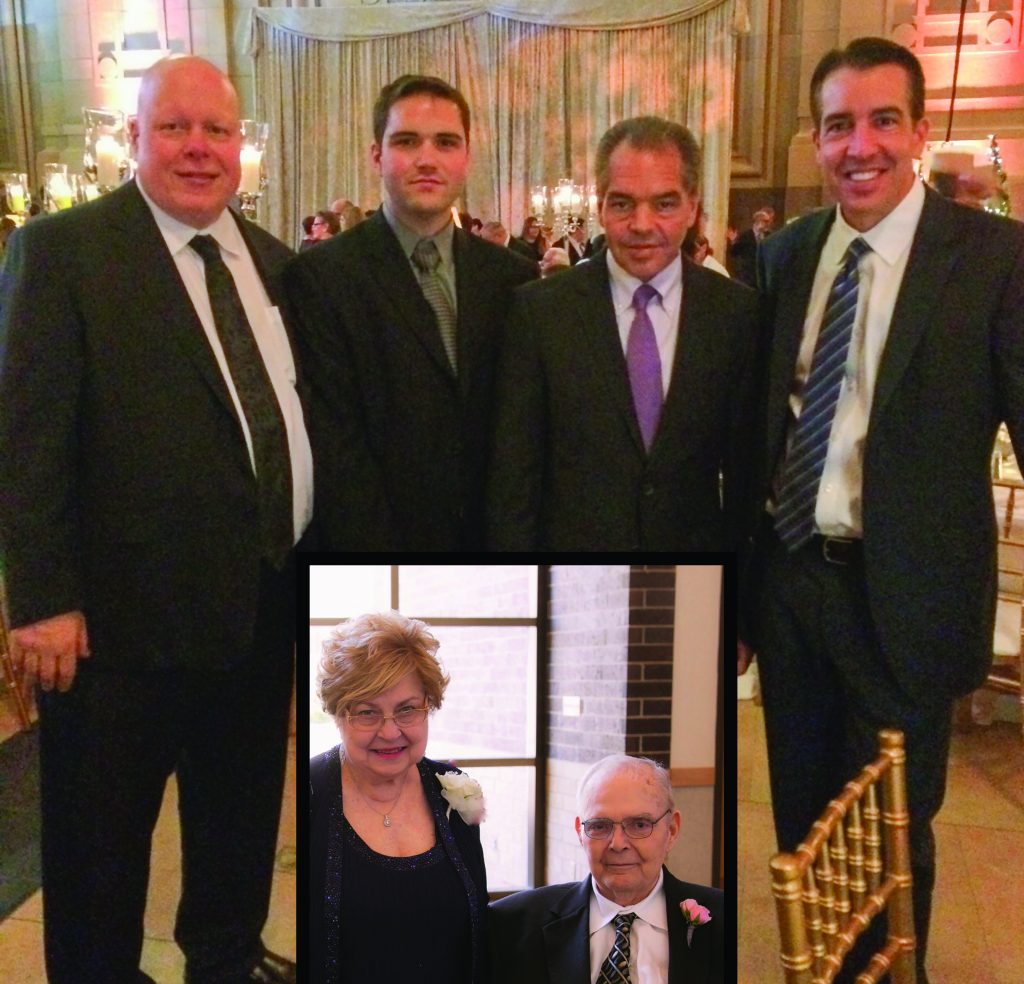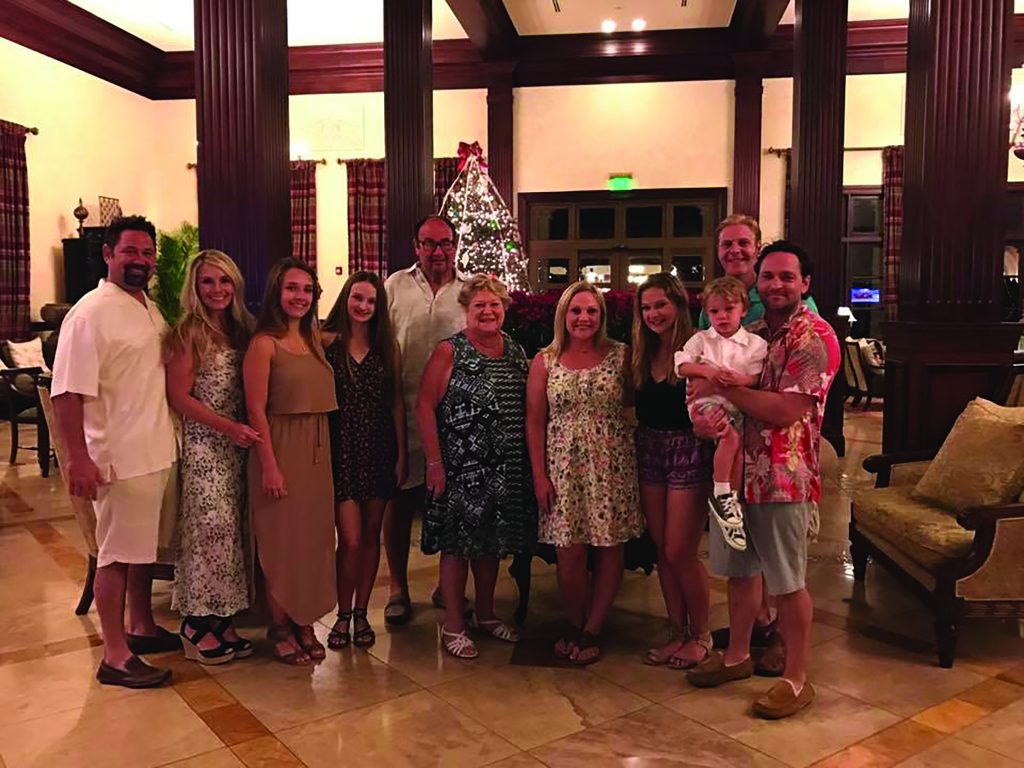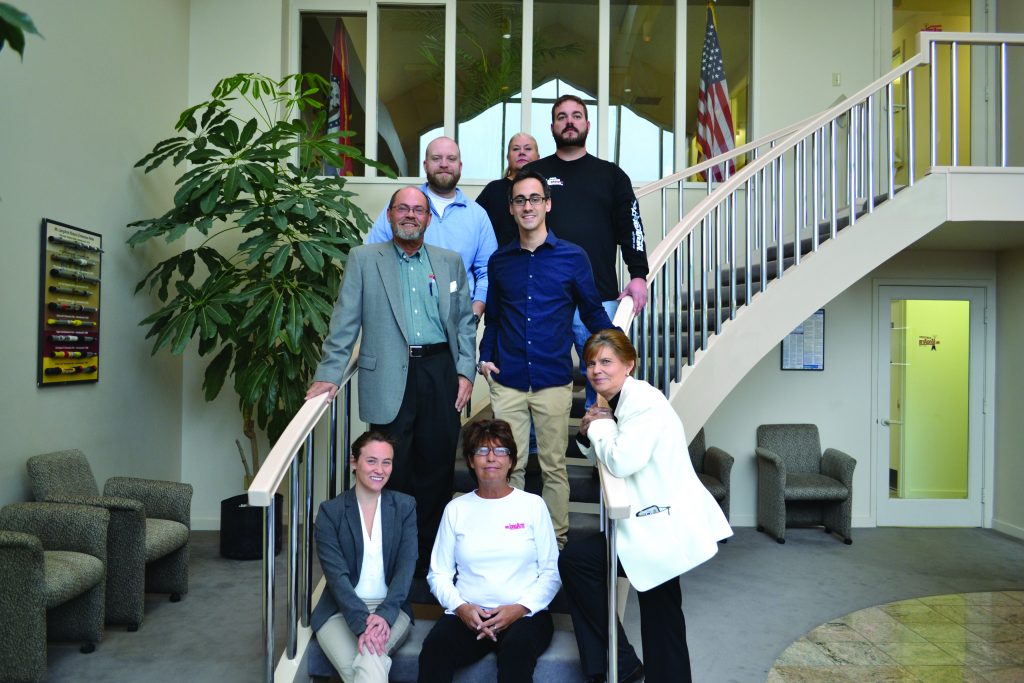HOME | ABOUT US | MEDIA KIT | CONTACT US | INQUIRE
HOME | ABOUT US | MEDIA KIT | CONTACT US | INQUIRE
For all the personal, economic and social value created by a successful family business, anyone who has ever owned one has lived with the fear of seeing it all go away. Last year, when she published “Beer Money: A Memoir of Privilege and Loss,” Frances Stroh offered us a gripping account of how America’s third-largest beer fortune vanished in little more than a generation.
It was, quite simply and quite tragically, gone in a puff of acrid smoke that rose from family dysfunction, 20/200 strate-gic vision, and years of devastatingly poor business judgment, all of it compounded by a host city in decline, throwing off countless uncontrollable outside risk factors.
Frances Stroh’s account represents the dark side of family businesses, most of which will never attain the $9 billion in wealth (estimated in today’s dollars) that Detroit-based Stroh Brewery Co. poured out over a century for descendants of German immigrant Bernhard Stroh.
It took four and five generations of the family to produce that outcome, one known grimly to many a family-business owner as the curse of the third generation, but one that can arrive early or make a tardy appearance in a fourth, fifth or succeeding cohort of the family. Sometimes, decades worth of vision, work and commitment can be wiped away by a few years, months even, of flawed decisions.
Thankfully, that business fate is not an inevitability. In fact, in the face of factors that can bring down a business that has been passed from generation to generation, we have bountiful examples of just the opposite outcome, right here in Kansas City. They are stories of companies that have looked the curse in the eye, spat in it, and have moved forward to find success on multiple levels.
Because those businesses have grown, they have produced far more than financial rewards for the families involved: They’ve created meaningful employment for the workers who make those organizations tick, and economic, philanthropic and quality-of-life benefits for the larger community as cogs in a thriving and diverse regional economy.
Almost invariably, companies that have survived this long have done it not by flaunting wealth created along the way, but by instilling in subsequent generations a sense of humility that comes from starting at the bottom, working your way up in the organization, understanding and embracing the raw power of a compounded interest derived from investments in incremental growth.
What we in the modern world of instant gratification and on-demand satisfaction might define as “success” these days can come in the flash of a market-shaking IPO. But true success is measured over the long haul, and these companies have achieved it.
Please join us in recognizing the powerful example they have created, quite unintentionally but somewhat ironically, for all of us, by focusing on what was most important to themselves.

Accompanied by their three children and spouses, Bob and Bridget Bagby hold propective job candidates from what would be the fifth generation of the Bagby-Bills heritage at B&B Theatres. The company was started by Bridget’s grandfather in 1924, and has been run by both families since.
Wow: This really was a marriage with a Hollywood ending. Back in 1979, the two families that owned small movie theater companies in the area became one. That’s when Bridget Bills, whose grandfather had started a theater in Salisbury, Mo., in 1924, married Bob Bagby, whose father had started working in the concession stand at Bills Theatres when he was just 10.
That union created what today is B&B Theatres, now a fourth-generation business that through expansion and acquisition has become the nation’s seventh-largest theater chain, with 401 screens at 50 locations in nine states.
After the Bills-Bagby nuptials, three couples owned equal shares of the company, a dynamic that left no one in control, and one that compelled a unified vision of where the company needed to go. “We each worked together, and we made it work,” Bagby says. “My dad was aggressive, Bridget’s dad was conservative, and I was somewhere in the middle.” But on major decisions, he said, they wanted to be in unanimous agreement. “We still follow that today with our kids,” he says. “There are lots of decisions made every day by different departments, but expansion opportunities, or whether to build or close a location, those are family decisions and we all sit around the table and talk about them.”
He and Bridget have three children working with them, Bobbie, Brittanie and Brock. (The family naming convention makes perfect sense if you’re trying to carry through with a brand—or save on the costs of monograms.) Bridget’s parents, Elmer Bills Jr. and wife Amy, are semi-retired, and Bridget’s brother left the direct employ of B&B to start an affiliated booking agency.
Each family member, Bagby said, brings a specific skill set and perspective to those discussions around the table—or, sometimes, Skype or the phone for Brittanie, who is based in Los Angeles to handle the marketing duties from a vantage point with ready
access to the nation’s biggest entertainment companies.
“She looks at it from a competitive situation—how we reach people, what we think the marketplace can do,” Bagby said. “Brock is on the construction side looking at competition, construction costs, what amenities we can bring to it that someone else
doesn’t have.” And Bobbie focuses on the business side of operations. “All those have to play in” to succeed, Bagby says.
And the tool that allows those elements to play in, he says, is “communication, communication, communication. You must talk things out. You have to have a clear division of duties so that you’re not walking over each other” ‘This is yours, this is yours, we work on big things together. You have to define your scope of involvement, then communicate to make sure you’re all on same page.”
Yes, there are days when the discussions can turn tense, “but we talk it out, sleep on it, talk again and reach a consensus,” he says. And that goes beyond just the children working there. “You have to keep the spouses in that loop,” he says. “If you have a spouse not involved, they need to be. All family members get the same information, so everyone knows what we’re doing, financial statements, whatever, to keep everybody informed.”
With 2,000 people pulling W-2s from the company last year, a challenge unique to B&B Theatres is extending the family feel across the organization. “We work hard at selling to people that we’re a family company,” Bagby said. “We just had a managers’ meeting where every manager had a personal meeting with one of the family members to talk personal concerns. We try hard to make it a family atmosphere. We’re big, but small enough to still give it a family feeling.”

Left: (l-r) Mario Brancato, CEO of Brancato’s Catering, with his son Andrew and brothers Steve and Nathan Brancato, Jr. Inset: Carmeline and Nathan Brancato Sr., who branded the family name onto the company they acquired in 1968 and built into one of the region’s best-known event catering and food-service providers.
Mario Brancato comes from the family that owned the former Fairyland Park theme park site in Kansas City, so he knows a little something about roller-coaster rides. Fortunately for him, as a second-generation owner of Brancato’s Catering, his son Andrew, of the third generation, and other members of the family, business has entailed lots of ups, and a minimal number of downs.
Mario is the CEO of the family business while his son, Andrew, is the company president. One brother, Nathan Brancato Jr.,, is vice president of sales and marketing, and brother Steve is semi-retired and living out of state.
The family dynamic has worked there, Mario said, “because everybody had his core strengths,” and allowing each to leverage those has created a smooth operation.
When a family is involved in administration of a business, Mario said, the key is to “always present a united front” so that employees will understand where the leadership’s vision is trying to take the organization. “Never let the employees see you argue,” Mario said. “That’s my No. 1 piece of advice. If they see the family divided, that’s not good—it doesn’t show fluid leadership.”
And that can have corrosive effects. For one thing, visible dissension can create mixed signals, or worse, clashing loyalties within a company.
For the Brancatos, though, agreement comes as naturally as if it were part of the family DNA. When the time arrives to achieve consensus, he says, “We’ve always been able to find it.”
One effective tool for promoting that buy-in from all family members, he said, is that “we always try to have lunch every day as a group.” Outside the office, there are extended family gatherings with dinner on Sundays, where business will invariably come up.
The corporate roots predated Brancato family ownership by a quarter-century; the company was originally chartered as Robinson Catering, and Mario’s father bought it in 1968. That’s when the big growth began, eventually making the company a food-service provider for both the Royals and Chiefs, and operating across a radius of 100 miles.
In 1982, it expanded with creation of All Seasons Event Rentals, a unit that was sold off last fall to a private equity fund. That move, Andrew says, will allow more focus on core areas of business.
Mario, who held food-service jobs at the family’s theme park when he was just a teenager, was able to draw on those skills as his career started, and built on them over the years after the family made the switch from hot dogs, popcorn and cotton candy into something a bit more sophisticated.
The initial acquisition of Robinson’s yielded a company that produced picnic-style fare. Not so today: Brancato’s is known for its broad range of sophisticated culinary offerings that can be served for intimate gatherings, corporate meetings, or venues that can accommodate thousands.
A sign that the company is achieving its quality goals came in 2015, when Catersource magazine added Brancato’s Catering to its list of Leading Caterers of America—making it the only catering company from the Kansas City region in that elite group of just 53 companies.
Andrew Brancato enjoys being able to strategize with his father because “I learn a ton, and it has a different quality than a standard business relationship.”
For Mario Brancato, there simply is no better business dynamic than family ownership. “You have that trust factor; you can trust your family,” he says. “To be with my son every day is a great thing. I just try not to ‘dad’ him too much.”

Arnold and Carol Caviar (center), surrounded by some of the fruits of their own life’s labor, their sons, daughter and grandchildren. After scaling back their day-to-day involvement, the company is now being run by son Allen, left, while daughter Allison handles accounting duties.
Before he would go on to build one of Kansas City’s premier produce companies, Arnold Caviar was a high school basketball coach—with a pretty good record—and his teaching schedule included business courses. After seven years, it was time to leave business theory behind and dive into the reality of it. He joined the small produce operation that had been founded by his parents in 1965 and turned it into what we know today as Liberty Fruit Co., a thriving, diversified company that is now into its third generation of family ownership.
And there’s a lot more to it than just fruit.
Not long ago, Caviar scaled back his hours at the office; his son Allen is now driving the show as president. Daughter Allison works
in the office, as well, and a third son, Cory, worked at the company for roughly 20 years, managing its IT needs, before retiring.
“I’ve been very fortunate,” says the elder Caviar. He’s in good health at 76, but more than ready to experience life outside the grind of the 15-hour days and six-day weeks that it took to build a company with roughly 350 employees today. “To me, with a family or business, at times you have to be lucky, you have to have a lot of street smarts and common sense, and you try to get your children, and the people who work for you, to think in those kinds of terms,” he says. “And I think they do.”
His parents launched the company from a few leased stalls in the City Market, and it wasn’t much larger than that when Caviar bought it in 1982. At that point, he and his wife, Carol, accounted for the family dynamic. “She was my calming influence—is my calming influence,” Caviar says.
Starting with just a pickup truck, those years of long days and short weekends transformed Liberty Fruit into a regional distributor of high-quality produce, serving companies as far as 500 miles away. Among those are more than 1,600 food service and institutional customers, hundreds of grocery retailers, and roughly 150 wholesale customers.
The type of business a family is in can be a complicating factor, and the distribution of produce is a fast-paced practice involving goods that can be highly perishable. So there’s a sense of urgency all the time. “It’s tough in families,” says Caviar, but despite the workload, he was able to arrange to be at his children’s athletic or school events as they were growing up. “But it’s tough in other partnerships to make things go the way you want,” he says. “You try to do the best you can with the situation you’re in.”
Caviar made sure that Liberty Fruit would become a philanthropic anchor for its home in Kansas City, Kan., and the broader region. It sponsors an annual golf classic that has raised millions for local charities—its highest-profile act of philanthropy, but by no means the only one.
Working with blood relatives, Caviar acknowledges, is a different animal in business, one that has to be nurtured with a certain amount of discipline. “Communication,” he says. “That’s the absolute key.” But blood ties don’t absolve you of the need to adhere to other fundamental business practices, so “get everything in writing,” he advises.
He feels blessed to have been able to spend his life working with those he loves most, but his is a family of more than five. “All the people who work for my company, 350 or thereabouts, are family,” he says. “There are things that have happened at times in some of their families that are not the best of situations, but when that happens, we all hurt like a family.”

Members of the Newman clan are (front row, left to right): Mary Cara Newman, Maureen Newman and President Deré Newman; middle row: Jeb Newman, Caleb. Newman; back row: Dru Newman, Leigh Newman and Shelby Groh. Not pictured: Board member Melissa Anderson.
Close to 60 years ago, R.D. Newman had a thought. While on a sales call in Wichita, he’d seen a paint contractor fumbling around, trying to attach the handle of a paint roller to piece of electrical conduit to fashion a jerry-rigged extension. The solution he came up with might have put a dent in stepladder industry sales, but it has been the salvation of many a painter whose target was a few inches out of reach, or a few feet away.
From that inspiration came Mr. Longarm, a company based in Greenwood, Mo., but big enough to have international operations, selling its original-concept telescoping aluminum extension handles, plus painting, cleaning and lighting materials, and more—even equine supplies for getting Seabiscuit spruced up.
But R.D. Newman created something else, as well: A company that now runs three generations deep, giving his children the opportunity to succeed together, either working for the company or serving on its board. Five of his offspring work there now, with a total of nine family members involved.
At the helm is Deré Newman, serving as president. Brother Jeb is in charge of inventory maintenance, and his daughter, Cara, assists with accounting in the front office, while son Caleb is a production specialist spearheading new projects. Leigh Newman, Deré’s sister, is director of financial and real-estate holdings, while her two children, Drew Newman and Shelby Groh, handle social media and maintenance of proprietary machinery. Another sister, Maureen, handles international business, shipping to 60 nations worldwide. And one more sister, Melissa Anderson, sits on the company board.
Ownership is equally shared by R.D.’s children, Deré Newman says, and in any other family structure, that lack of someone with absolute authority could be a complication. Not with the Newmans. “It’s worked out extremely well with all of us,” Newman says. “We’re able to bring new ideas and different opinions to our strategies and decisions, so at the end of the day, we’re all definitely a very cohesive unit, and I think that speaks to the family environment we were always involved in.”
Deré Newman became president in 2002, succeeding the oldest sibling, Don, who led the company during their father’s years of declining health. As new generations have come on board, the dynamic has changed a bit, Deré Newman says, but it’s been a change for the good: “We didn’t have near enough time with my father and the rest of us, but those three generations give us a look from our past; from my generation and my sisters’ and brother’s generations, the present, and now, with a new generation involved, it’s second nature.”
A unified front to create a profitable, healthy company, Newman said, goes well beyond familial self-interest: “We have that shared vision of a strong company not just for the family, but for employees. Our desire is to make this company the servant of their hopes and dreams, as well.”
To accommodate the needs of roughly 100 employees working there year-round—it can go as high as 140 with seasonal work—three operating principles apply: